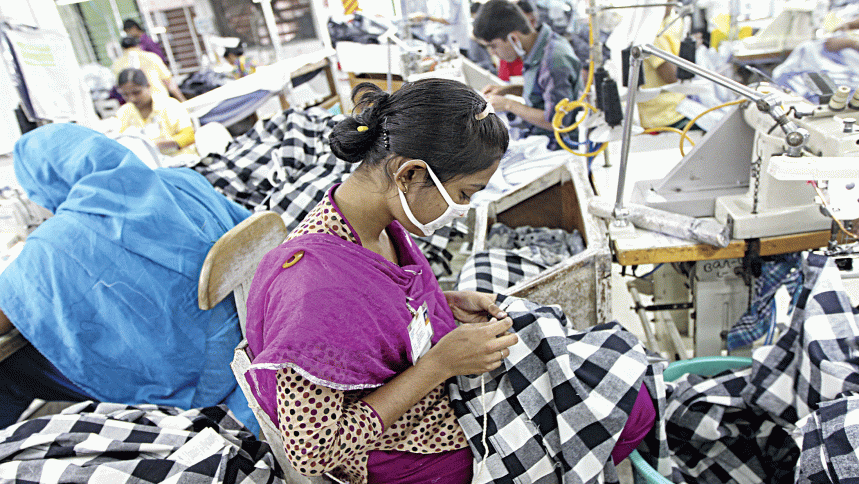Bangladesh close to being world’s top cotton apparel exporter

Bangladesh is close to surpassing China as the world's largest cotton apparel exporter and stronger demand prospects are expected to drive cotton consumption higher, said the US Department of Agriculture (USDA).
The US agency, citing the annual fashion industry benchmarking study by the United States Fashion Industry Association (USFIA), said American fashion companies are attempting to reduce their sourcing from China, now the largest apparel exporter.
As such, American brands are reallocating their sourcing orders to other markets, including Bangladesh, to minimise logistical and political risks.
Bangladesh, India, and Vietnam were the three suppliers that retailers plan to increase sourcing from over the next two years to divert orders away from China, said the USDA in its latest report on global cotton trade.
"The USFIA study also indicates that Bangladesh is the most competitive apparel supplier from a cost structure point of view, scoring higher than any other country," the USDA said in its report, styled "Cotton: World Markets and Trade", released on August 11.
The forecast by the US agency comes after Bangladesh's apparel makers fetched nearly $47 billion in woven and knitwear shipments in the fiscal 2022-23, which was higher than the target for that year.
Bangladesh's factories mostly make cotton-based garments and more than 70 percent of export shipments are comprised of cotton items, according to industry operators.
Bangladesh was the second largest garment exporter in the world after China in 2022, according to the World Trade Organisation.
The USDA said Bangladesh is targeting more than $50 billion of apparel exports in FY2024, slightly higher than the previous fiscal year and "proof that the government foresees greater demand".
"Spinning mills' operating rates in 2023-24 are expected to rise as the textile supply chain replenishes depleted stocks of yarn, fabric, and apparel; this past marketing year witnessed textile manufactures destocking and maintaining low inventories across the supply chain," it added.
The US agency forecasts that Bangladesh's cotton consumption would rise by 800,000 bales, or 10 percent year-on-year, due to burgeoning apparel exports in fiscal year 2023-24.
As such, cotton imports by mills of Bangladesh, which largely depends on the international market for scanty domestic production, is projected to increase to 8 million bales.
The US agency, citing Bangladesh Textile Mills Association, said local textile mills meet 85 percent of the demand for knit fabrics and about 40 percent for woven fabric, which is mostly imported from China.
"Knitted cotton shirts and sweaters have been major products helping drive recent record high values," it added.
The USDA said apparel exports are pivotal to Bangladesh's economic growth and stabilising the value of the domestic currency, specifically by obtaining US dollars through foreign sales.
Apparel accounts for over 80 percent of the country's total exports each year, with the current export volume of nearly $47 billion being more than double what it was a decade ago.
"This value surpassed the previous year's record and indicates global importers' increasing preference for Bangladeshi cotton products," it said, adding that exports of knit apparel have been crucial to recent growth.

 For all latest news, follow The Daily Star's Google News channel.
For all latest news, follow The Daily Star's Google News channel. 








Comments